
The Vibrant Heart of Morocco: Casablanca
Casablanca, Morocco's largest city, is a bustling metropolis that beautifully blends tradition with modernity. As the economic hub of the country, it offers a unique combination of historic charm and contemporary allure. The city's skyline is dotted with impressive skyscrapers, while its streets are lined with colonial architecture that tells the story of its rich history. One of Casablanca's most iconic landmarks is the Hassan II Mosque, which boasts the tallest minaret in the world. Overlooking the Atlantic Ocean, this architectural marvel is a testament to Moroccan craftsmanship and is a must-visit for any traveler. The city's old medina offers a glimpse into the past with its narrow streets, traditional markets, and vibrant souks, where visitors can shop for local crafts and exotic spices. Casablanca is also known for its thriving art scene and lively nightlife. The city's numerous galleries, theaters, and music venues showcase the best of Moroccan culture, while its trendy bars and restaurants serve delicious cuisine that reflects the country's diverse culinary heritage. From fresh seafood to flavorful tagines, dining in Casablanca is a feast for the senses. With its stunning coastal views, rich cultural heritage, and modern amenities, Casablanca is a captivating destination that promises an unforgettable experience for every visitor.
Local tips in Casablanca
- Visit the Hassan II Mosque early in the morning to avoid crowds and enjoy a peaceful experience.
- Explore the old medina with a local guide to uncover hidden gems and learn about its history.
- Try the seafood at the port area for the freshest catch of the day.
- Take a walk along the Corniche to admire the ocean views and relax at one of the seaside cafes.
- Visit the Quartier Habous for a mix of traditional Moroccan and French colonial architecture.
Neighbourhoods in Casablanca
The Vibrant Heart of Morocco: Casablanca
Casablanca, Morocco's largest city, is a bustling metropolis that beautifully blends tradition with modernity. As the economic hub of the country, it offers a unique combination of historic charm and contemporary allure. The city's skyline is dotted with impressive skyscrapers, while its streets are lined with colonial architecture that tells the story of its rich history. One of Casablanca's most iconic landmarks is the Hassan II Mosque, which boasts the tallest minaret in the world. Overlooking the Atlantic Ocean, this architectural marvel is a testament to Moroccan craftsmanship and is a must-visit for any traveler. The city's old medina offers a glimpse into the past with its narrow streets, traditional markets, and vibrant souks, where visitors can shop for local crafts and exotic spices. Casablanca is also known for its thriving art scene and lively nightlife. The city's numerous galleries, theaters, and music venues showcase the best of Moroccan culture, while its trendy bars and restaurants serve delicious cuisine that reflects the country's diverse culinary heritage. From fresh seafood to flavorful tagines, dining in Casablanca is a feast for the senses. With its stunning coastal views, rich cultural heritage, and modern amenities, Casablanca is a captivating destination that promises an unforgettable experience for every visitor.
When is the best time to go to Casablanca?
Iconic landmarks you can’t miss
Hassan II Mosque
Explore the Hassan II Mosque in Casablanca, a stunning architectural feat and a symbol of Morocco's rich cultural heritage, standing majestically by the Atlantic.
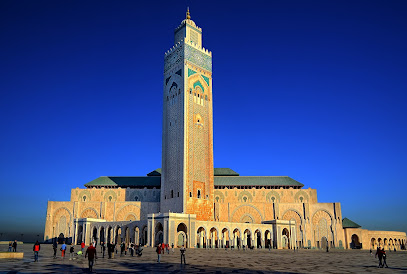
United Nations Square
Discover the vibrant atmosphere of United Nations Square in Casablanca, where culture, history, and modernity unite in a magnificent urban setting.
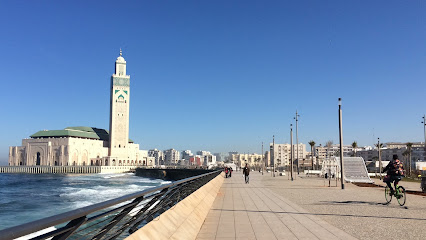
Mohammed V Square
Explore the vibrant Mohammed V Square, a historical landmark in Casablanca, where architecture, culture, and local life converge.
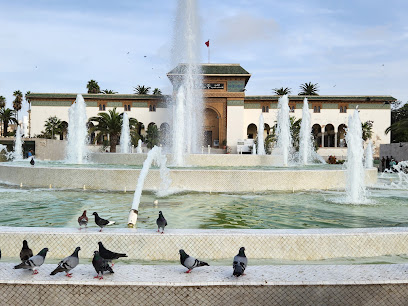
Parc Sindibad
Experience the thrill of rides and the wonder of wildlife at Parc Sindibad, Casablanca's premier amusement and animal park.
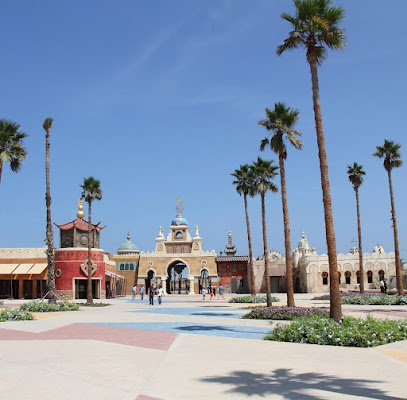
Arab League Park
Discover the beauty of Arab League Park, a central green space in Casablanca perfect for relaxation, cultural exploration, and family outings.
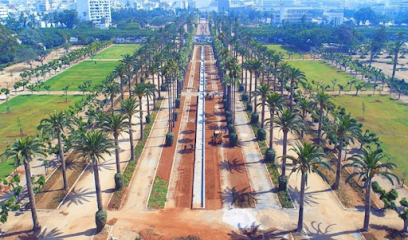
Central Marketplace
Discover the heart of Casablanca's culinary culture at the Central Marketplace, where fresh produce and seafood create a vibrant shopping experience.
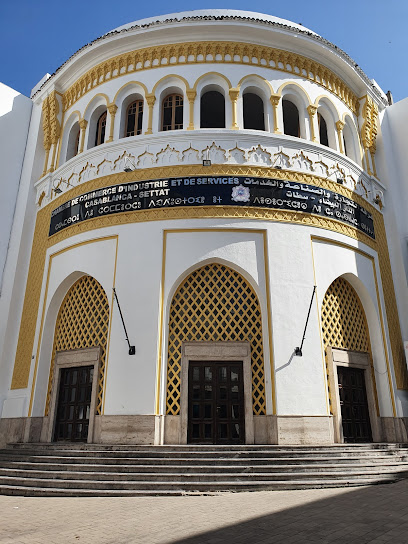
Qisariyyat Al-Haffari
Discover the vibrant Qisariyyat Al-Haffari flea market in Casablanca, where authentic Moroccan culture, crafts, and cuisine await your exploration.
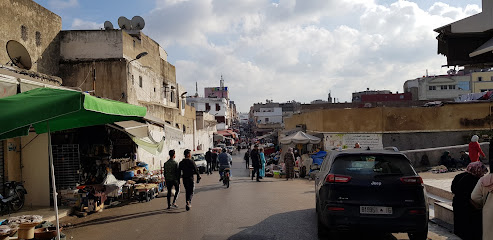
Casablanca Twin Towers
Explore the Casablanca Twin Towers, a stunning architectural feat that blends modern design with Moroccan tradition in the heart of the city.
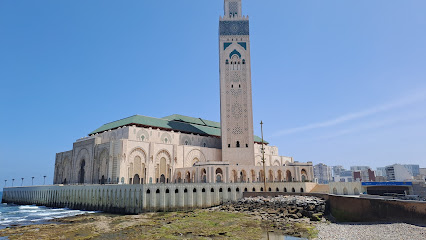
Royal Palace
Discover the Royal Palace of Casablanca, an architectural gem reflecting Morocco's royal heritage and cultural richness, surrounded by vibrant local life.
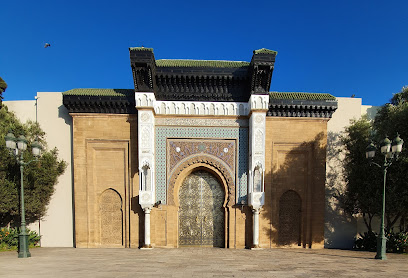
Parc Murdoch
Discover tranquility at Parc Murdoch, a stunning park offering lush gardens and cultural vibes in the heart of Casablanca, perfect for relaxation and exploration.
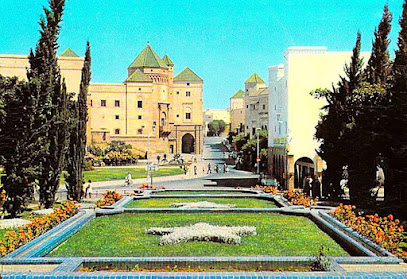
Hassan II Mosque Museum
Discover the breathtaking architecture and cultural heritage of Morocco at the Hassan II Mosque Museum in Casablanca, a must-visit for every traveler.
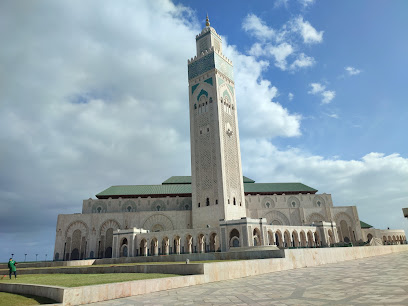
Bab Marrakech Flea market
Experience the vibrant culture and unique treasures of Bab Marrakech Flea Market in Casablanca, a true gem for every traveler seeking authentic Moroccan flair.
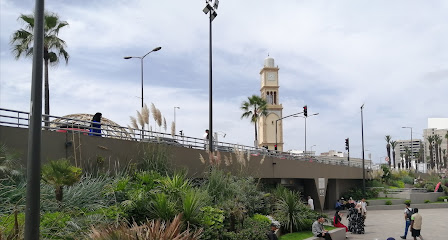
Church of Notre Dame of Lourdes
Explore the architectural beauty and spiritual tranquility of the Church of Notre Dame of Lourdes in Casablanca, a must-visit for every traveler.
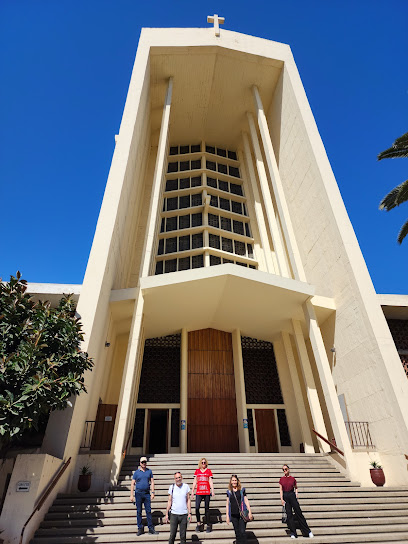
Hammam Ziani
Discover the tranquility of Hammam Ziani, a traditional public bath in Casablanca, where Moroccan wellness rituals await to rejuvenate your body and spirit.
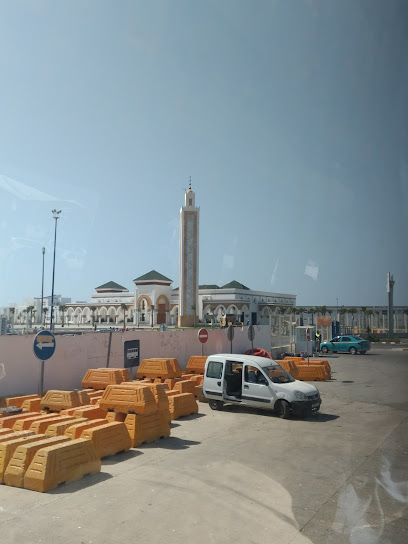
Sacred Heart Cathedral
Discover the breathtaking beauty of Sacred Heart Cathedral, a neo-Gothic marvel and serene oasis in the heart of Casablanca, Morocco.
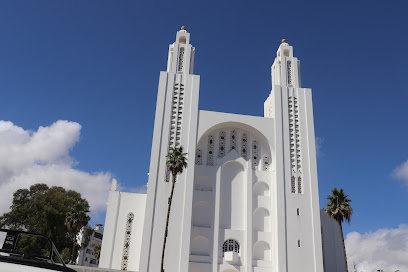
Unmissable attractions to see
Hassan II Mosque
Discover the Hassan II Mosque in Casablanca, a magnificent architectural gem and a vital piece of Moroccan culture, blending spirituality with stunning coastal views.
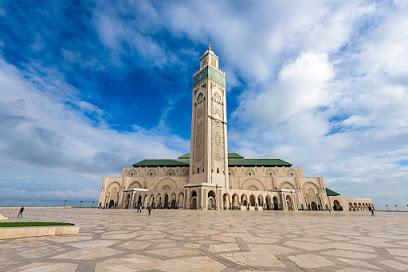
United Nations Square
Discover the vibrant pulse of Casablanca at United Nations Square, a cultural landmark blending history, modernity, and local life.
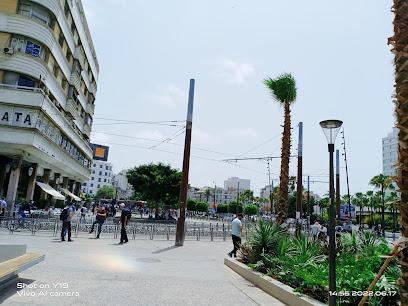
Arab League Park
Experience tranquility and natural beauty at Arab League Park, Casablanca's urban oasis featuring lush gardens and serene pathways.
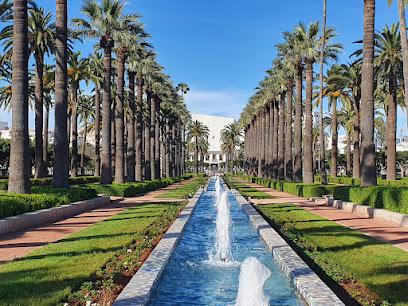
Parc Sindibad
Discover the magic of Parc Sindibad, a captivating amusement park in Casablanca perfect for family adventures and unforgettable experiences.
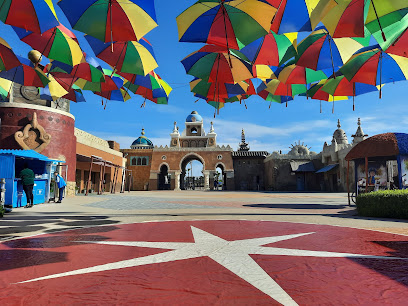
Royal Palace
Explore the grandeur of the Royal Palace in Casablanca, a stunning example of Moroccan architecture and rich royal heritage.
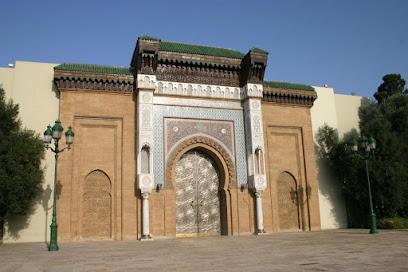
Church of Notre Dame of Lourdes
Explore the breathtaking Church of Notre Dame of Lourdes in Casablanca, a unique blend of modernist architecture and vibrant spirituality.
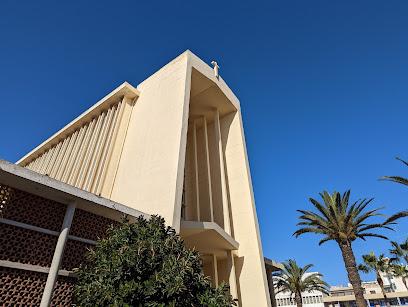
Sacred Heart Cathedral
Discover the Sacred Heart Cathedral in Casablanca, a stunning neo-Gothic landmark that showcases Morocco's rich architectural and cultural heritage.
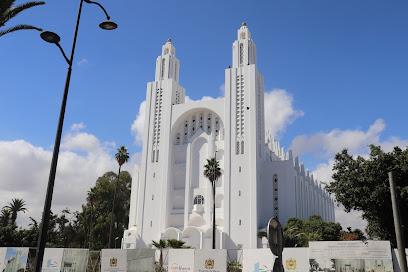
VGK Karting
Experience the ultimate thrill of karting at VGK Karting in Mohammedia, Morocco, where adventure and excitement await for all ages.
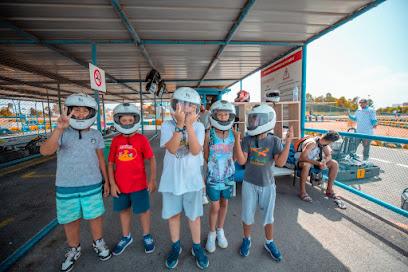
Villa of Arts
Explore the vibrant world of contemporary Moroccan art at the Villa of Arts in Casablanca, a cultural hotspot for art lovers and tourists alike.
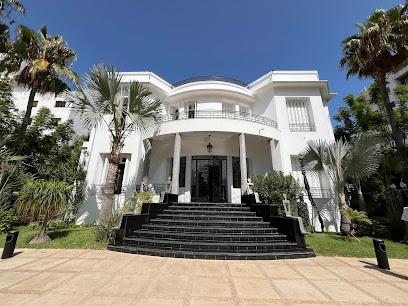
Beth-El Temple
Discover the architectural beauty and historical significance of Beth-El Temple, a must-visit Jewish landmark in the heart of Casablanca.
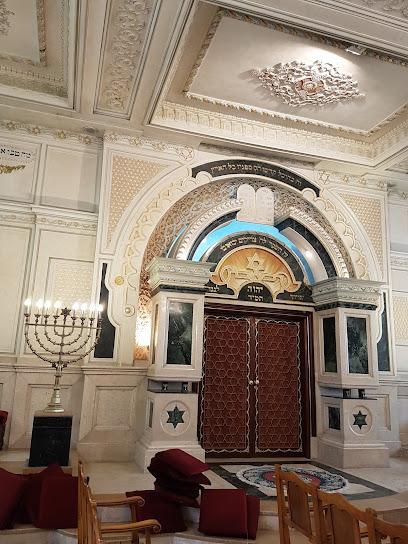
El Hank Lighthouse
Experience the beauty and history of El Hank Lighthouse, a stunning landmark in Casablanca offering breathtaking ocean views and cultural insights.
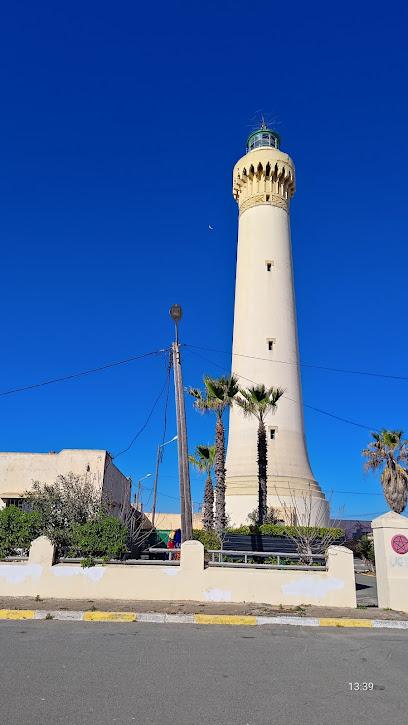
Museum of Moroccan Judaism
Explore the Museum of Moroccan Judaism in Casablanca for a unique insight into the rich cultural tapestry of Morocco's Jewish heritage.
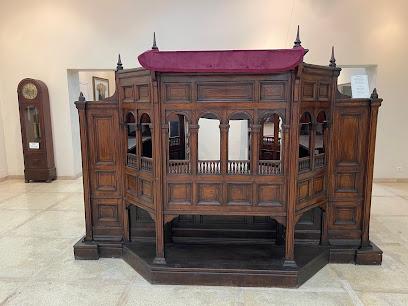
l'Hermitage Garden
Explore the serene beauty of l'Hermitage Garden in Casablanca, a lush escape filled with vibrant flora and tranquil walking paths.
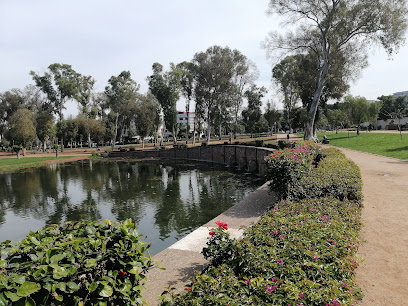
Mahkama of Pacha
Explore the exquisite Mahkama of Pacha in Casablanca, a stunning blend of architectural beauty and rich Moroccan heritage.
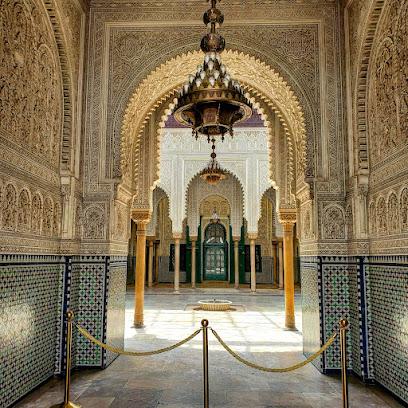
Abderrahman Slaoui Foundation Museum
Discover the rich tapestry of Moroccan art at the Abderrahman Slaoui Foundation Museum, where tradition meets modernity in a stunning cultural experience.
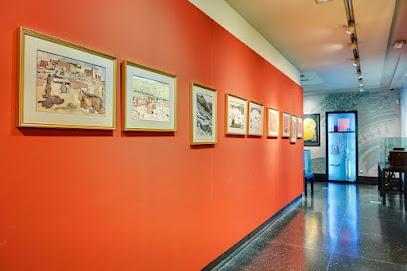
Essential places to dine
La Sqala
Discover the heart of Moroccan cuisine at La Sqala in Casablanca – where tradition meets flavor in a beautiful historical setting.
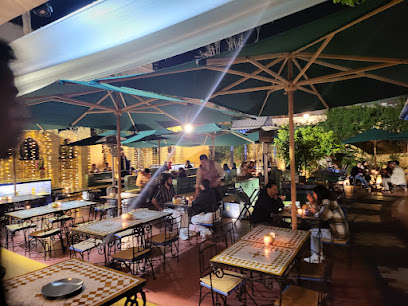
Rick's Café
Discover Rick's Café in Casablanca: A captivating blend of seafood delights and cinematic charm amidst vibrant Moroccan culture.
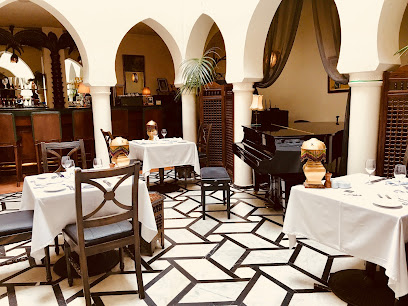
Le Cabestan
Discover Mediterranean elegance at Le Cabestan in Casablanca—where exceptional cuisine meets breathtaking ocean views.
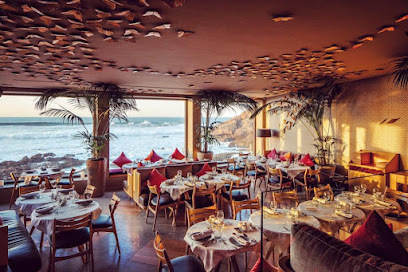
Al-Mounia
Discover the heart of Moroccan cuisine at Al-Mounia in Casablanca – where tradition meets flavor in every dish.
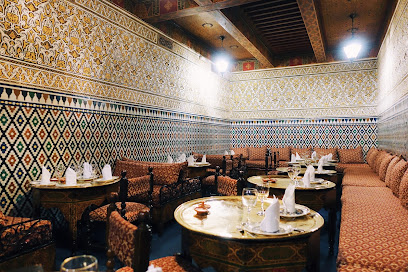
Riad 21
Discover authentic Moroccan cuisine at Riad 21 in Casablanca, where tradition meets flavor in a warm and inviting atmosphere.
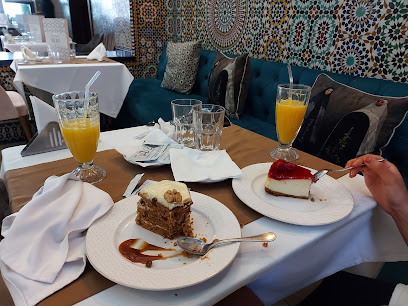
Mood's Café-Restaurant
Discover Mood's Café-Restaurant: A Culinary Oasis Blending Moroccan Tradition with Modern Flavors in Casablanca.
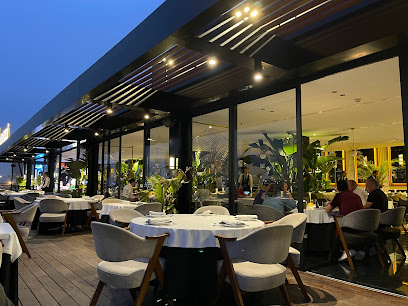
Casa Jose
Experience authentic Spanish cuisine at Casa Jose in Casablanca, where vibrant flavors meet Moroccan hospitality for an unforgettable dining experience.
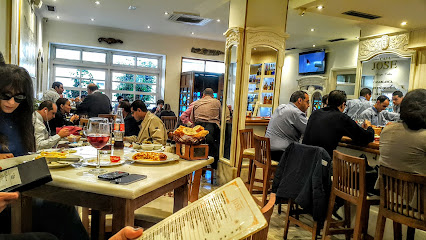
Dar Dada
Experience authentic Moroccan flavors at Dar Dada in Casablanca - where tradition meets culinary excellence.
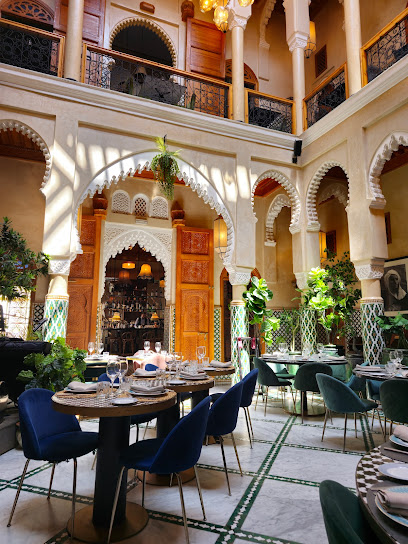
Restaurant Des Fleurs
Experience authentic Moroccan cuisine at Restaurant Des Fleurs in Casablanca - where every dish tells a story.
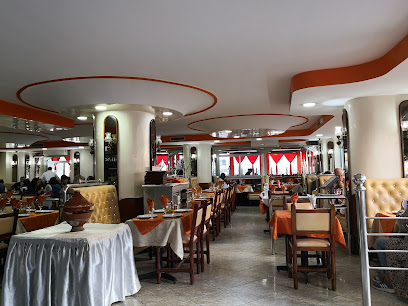
La Bodega de Casablanca
Discover authentic Spanish cuisine in Casablanca at La Bodega de Casablanca - a delightful blend of flavors and cultural ambiance.
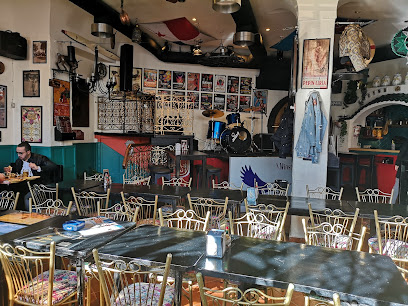
Oncle Blend
Experience exquisite meat dishes in Casablanca's chic lounge setting at Oncle Blend - where tradition meets modern culinary artistry.
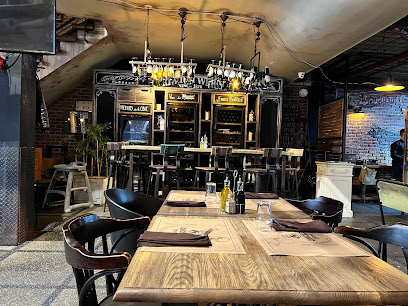
Le Cuistot Traditionnel
Experience authentic Moroccan cuisine at Le Cuistot Traditionnel in Casablanca - where tradition meets flavor.
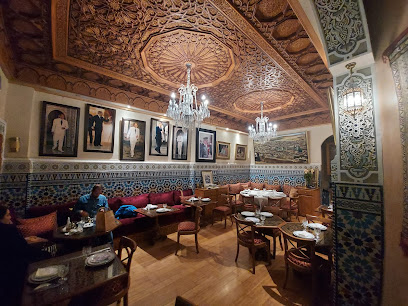
Au Four A Bois
Experience authentic Italian cuisine at Au Four A Bois in Casablanca – home to delicious pizzas and a cozy atmosphere perfect for any occasion.
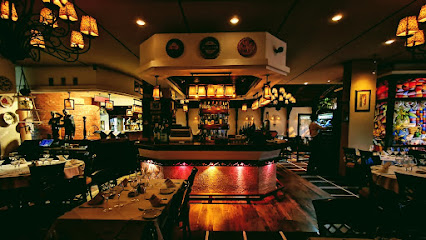
Organic Kitchen
Discover Organic Kitchen in Casablanca - where fresh ingredients meet Moroccan culinary tradition for a delightful dining experience.
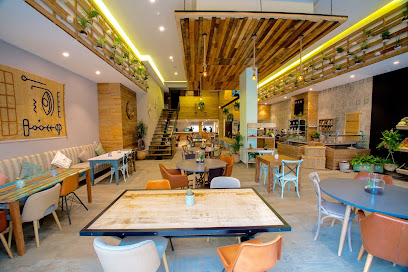
Zayna Moroccan taste
Discover authentic Moroccan cuisine at Zayna - where organic meets tradition in the heart of Casablanca.
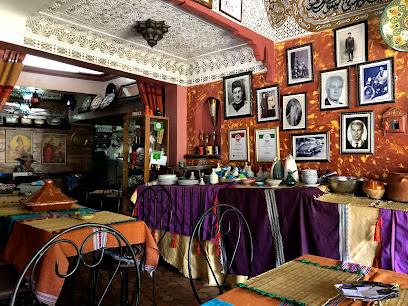
Markets, malls and hidden boutiques
Morocco Mall
Explore Morocco Mall in Casablanca, where luxury shopping meets Moroccan culture in a vibrant and modern setting.
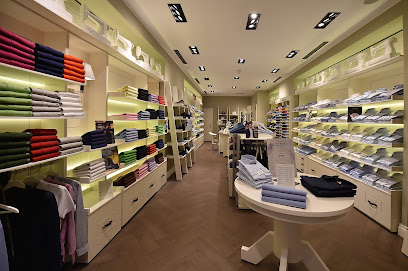
Anfaplace Mall
Discover the best shopping, dining, and entertainment at Anfaplace Mall, Casablanca's coastal shopping oasis.
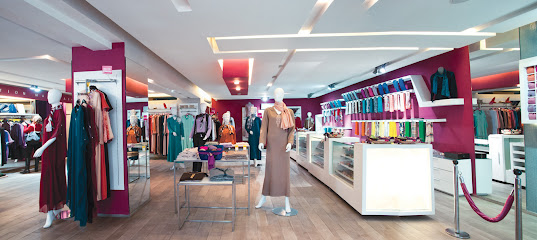
Marina Shopping
Discover Marina Shopping in Casablanca: A vibrant shopping mall offering a mix of retail, dining, and entertainment for an unforgettable experience.
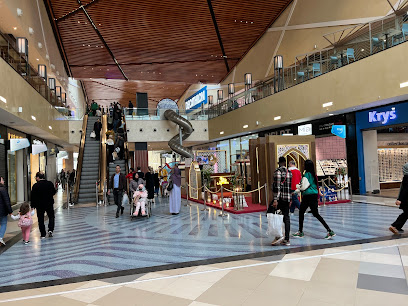
TO concept store
Explore TO Concept Store in Casablanca for unique fashion, home decor, and a taste of local Moroccan creativity and artistry.
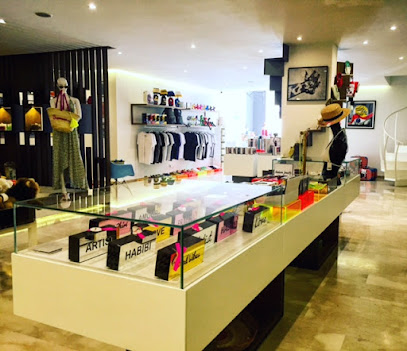
Unique Shop
Explore Unique Shop in Casablanca for an unparalleled selection of beauty products celebrating local and global trends.
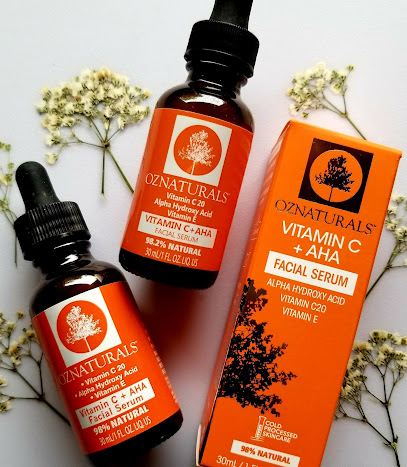
sobh
Discover unique Moroccan gifts at Sobh, a vibrant gift shop in Casablanca’s la Vilette, perfect for capturing the essence of your travels.
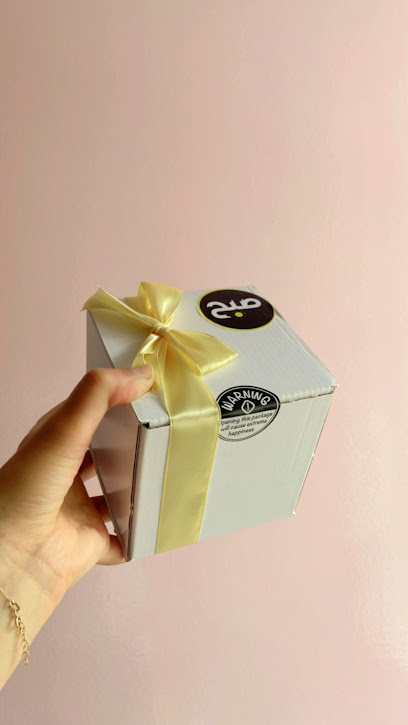
ZARA HOME
Explore ZARA HOME in Casablanca for stunning home decor that blends modern design with Moroccan elegance.
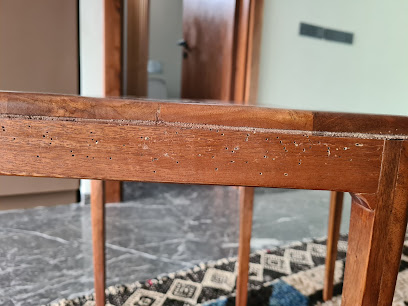
made by moroccan women
Explore the artistry of Moroccan women at 'Made by Moroccan Women' – a unique couture store in Casablanca showcasing handcrafted garments.
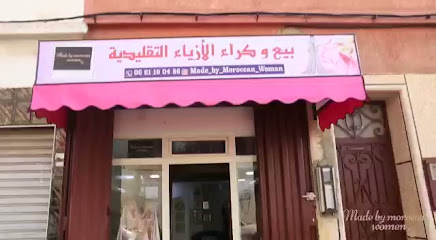
Store Free
Discover the vibrant styles of Morocco at Store Free, a premier clothing store in Casablanca offering trendy apparel for every taste.
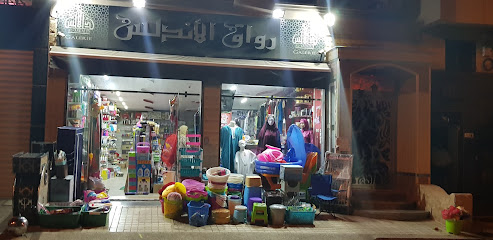
Boutique Casablancashop
Explore the vibrant fashion scene at Boutique Casablancashop, where Moroccan charm meets contemporary style in the heart of Casablanca.

Casablanca Shopping
Explore the best of Moroccan fashion at Casablanca Shopping, where local styles meet contemporary trends in a vibrant shopping atmosphere.
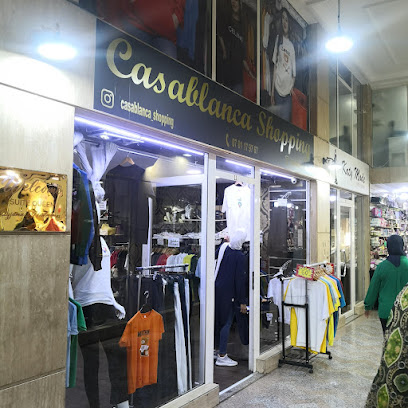
la7ya shop
Explore la7ya Shop in Casablanca for an unforgettable shopping experience featuring unique local clothing styles and vibrant market atmosphere.
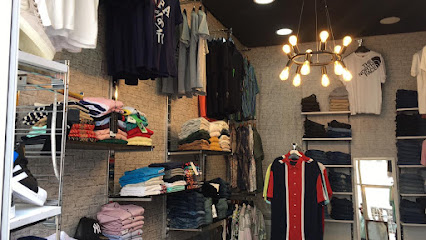
CASA SHOP - RIM STORE
Explore the vibrant fashion scene at CASA SHOP - RIM STORE, where Moroccan tradition meets modern style in the heart of Casablanca.

Off-White Casablanca
Explore Off-White Casablanca: A premier destination for high-end streetwear and contemporary fashion in the heart of Morocco Mall.

goud shop
Explore the magical Goud Shop in Casablanca, a delightful children's book store offering a vast selection of enchanting stories for young readers.

Essential bars & hidden hideouts
The Irish Pub Casablanca
Discover the lively atmosphere and authentic Irish cuisine at The Irish Pub Casablanca, a must-visit destination for beer lovers and food enthusiasts alike.
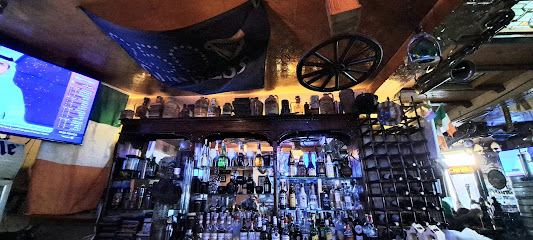
Backstage Casablanca
Experience the vibrant nightlife of Casablanca at Backstage, a stylish lounge offering eclectic drinks, live music, and a lively atmosphere.
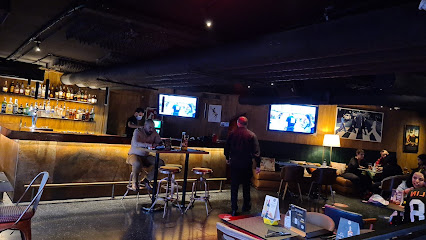
Le Jefferson
Le Jefferson offers an unforgettable cocktail and dining experience in the heart of Casablanca’s nightlife, perfect for tourists and locals alike.
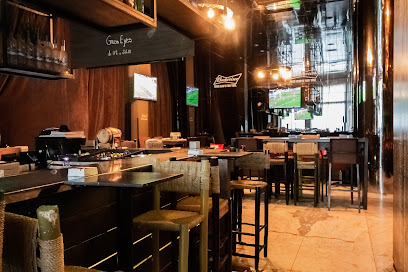
Le Trica
Experience the vibrant atmosphere of Le Trica, the cozy pub in Casablanca offering a diverse beverage selection and a touch of Moroccan hospitality.
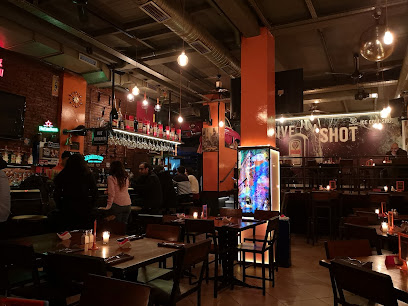
Amstrong Official
Experience the pulse of Casablanca at Amstrong Official, a premier live music venue offering electrifying performances and an unforgettable nightlife experience.
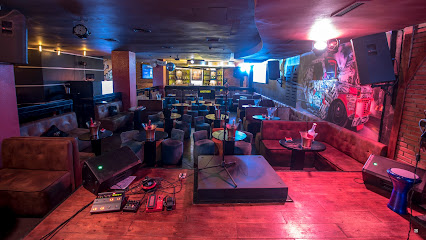
Bar Atomic
Experience the vibrant nightlife of Casablanca at Bar Atomic, where delicious drinks and a lively atmosphere await.
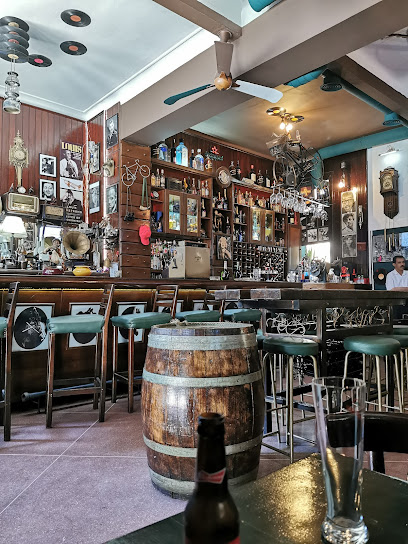
Wynn
Discover the vibrant charm of Wynn, a wine bar in Casablanca, offering an exquisite selection of wines and delightful brasserie dishes in a chic setting.
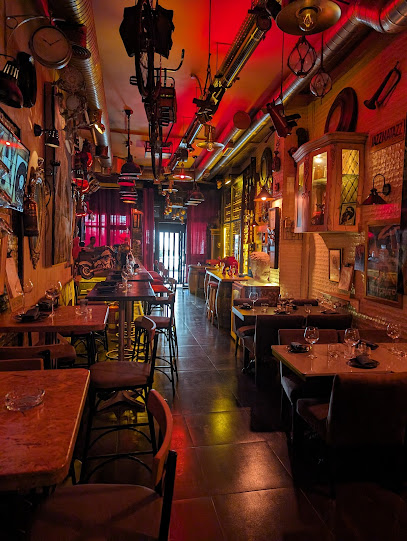
Rock Feller English Pub
Experience the vibrant blend of English pub culture and Moroccan charm at Rock Feller English Pub in Casablanca.
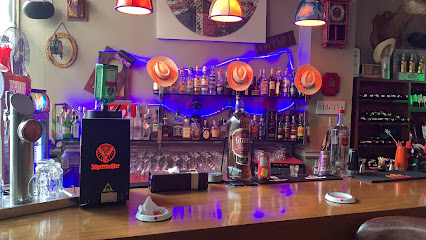
Brasserie La Cigale
Experience the vibrant ambiance and local flavors at Brasserie La Cigale, Sidi Belyout's favorite bar for socializing and relaxation.
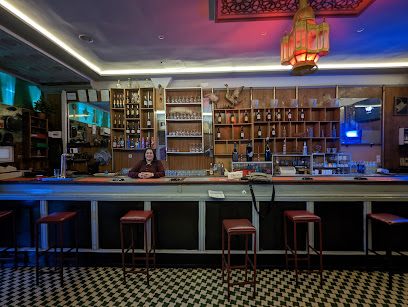
Vertigo
Experience the vibrant nightlife of Casablanca at Vertigo, a stylish lounge offering signature drinks and a welcoming atmosphere for all.
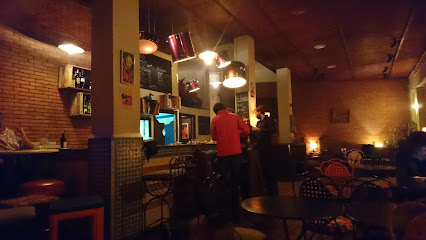
Bar CasArt
Experience Casablanca's vibrant nightlife at Bar CasArt, where cultural richness and lively ambiance meet exquisite drinks and delightful company.
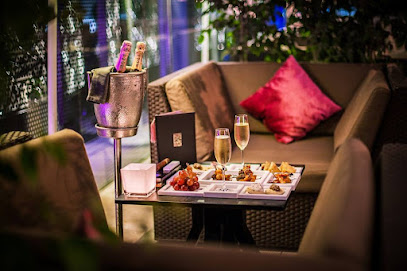
Bar Ma Touraine
Experience the lively nightlife of Casablanca at Bar Ma Touraine, where friendly vibes and affordable drinks create unforgettable memories.
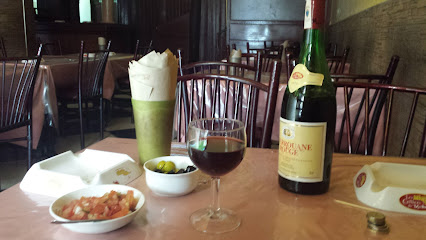
NIXX/XXIN
Experience the vibrant nightlife of Casablanca at NIXX/XXIN, a stylish cocktail bar with innovative drinks and a lively atmosphere.
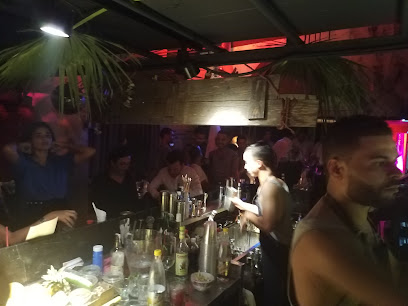
Le 4 Lounge Bar
Discover the vibrant nightlife of Casablanca at Le 4 Lounge Bar, where exquisite cocktails and an enchanting atmosphere await.
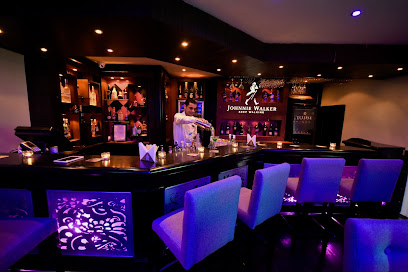
Local Phrases
-
- Helloسلام
[salam] - Goodbyeوداعا
[wadaea] - Yesنعم
[naam] - Noلا
[la] - Please/You're welcomeمن فضلك
[min fadlik] - Thank youشكرا
[shukran] - Excuse me/Sorryعذرا
[aadhara] - How are you?كيف حالك؟
[kayf halik?] - Fine. And you?بخير. وأنت؟
[bkheir. wa ant?] - Do you speak English?هل تتحدث الإنجليزية؟
[hal tatahadath al'inglizia?] - I don't understandلا أفهم
[la afham]
- Helloسلام
-
- I'd like to see the menu, pleaseأريد أن أرى القائمة، من فضلك
[urid an ara alqaimah, min fadlik] - I don't eat meatلا آكل اللحم
[la aakol allahm] - Cheers!صحتين!
[sahatayn] - I would like to pay, pleaseأود أن أدفع، من فضلك
[awad an adfae, min fadlik]
- I'd like to see the menu, pleaseأريد أن أرى القائمة، من فضلك
-
- Help!النجدة!
[alnajdah!] - Go away!ارحل!
[irhal!] - Call the Police!اتصل بالشرطة!
[aitisal bialshurtah!] - Call a doctor!اتصل بالطبيب!
[aitisal bialtabib!] - I'm lostضاعت الطريق
[daeat altariq] - I'm illأنا مريض
[ana mareed]
- Help!النجدة!
-
- I'd like to buy...أريد أن أشتري...
[urid an ashtari...] - I'm just lookingأنا فقط أتفرج
[ana faqat atfarg] - How much is it?كم هو ثمنه؟
[kam hu thamanuh?] - That's too expensiveهذا غالي جدا
[hatha ghali jiddan] - Can you lower the price?هل يمكنك تخفيض السعر؟
[hal yumkinuk takhfiz alsaeir?]
- I'd like to buy...أريد أن أشتري...
-
- What time is it?كم الساعة؟
[kam alsaaah?] - It's one o'clockالساعة الواحدة
[alsaaah alwahidah] - Half past (10)العاشرة والنصف
[al'ashirah walnisf] - Morningصباح
[sabah] - Afternoonبعد الظهر
[baed aldhuhur] - Eveningمساء
[masa] - Yesterdayالبارحة
[albarihah] - Todayاليوم
[alyawm] - Tomorrowغدا
[ghadan] - 1واحد
[wahid] - 2اثنين
[ithnan] - 3ثلاثة
[thalathah] - 4أربعة
[arbaah] - 5خمسة
[khamsah] - 6ستة
[sittah] - 7سبعة
[sabah] - 8ثمانية
[thamania] - 9تسعة
[tisah] - 10عشرة
[asharah]
- What time is it?كم الساعة؟
-
- Where's a/the...?أين هو/هي...؟
[ayn hu/hi...?] - What's the address?ما هو العنوان؟
[ma hu alaunwan?] - Can you show me (on the map)?هل يمكنك أن تريني (على الخريطة)؟
[hal yumkinuk an tarini (ala alkhareeta)?] - When's the next (bus)?متى الحافلة التالية؟
[mata alhafilat altaliat?] - A ticket (to ....)تذكرة (إلى ....)
[tazkirah (ila ....)]
- Where's a/the...?أين هو/هي...؟
History of Casablanca
-
The area around Casablanca has been inhabited since the Paleolithic era. Archaeological findings suggest that early humans settled here due to its strategic coastal location. Over the centuries, the region was influenced by various cultures, including the Phoenicians, who established trading posts along the Moroccan coastline.
-
During the early medieval period, the area that is now Casablanca was part of the Berber Kingdoms. The Berbers, indigenous people of North Africa, established a series of small, fortified settlements. These settlements served as important centers for trade and cultural exchange.
-
By the 10th century, the city of Anfa had emerged as a significant port town. Anfa was known for its prosperity and was a center for pirates who plagued European shipping routes. In the 15th century, the Portuguese destroyed Anfa due to its pirate activities, but they later rebuilt it and named it Casa Branca, meaning 'White House'.
-
The Portuguese occupied the rebuilt Casa Branca from 1515 to 1755. During this period, the city served as a key Portuguese trading port. However, frequent conflicts with the local Berber population and natural disasters, such as the 1755 Lisbon earthquake, led to the Portuguese abandoning the city. The Spanish briefly took over before it fell under the control of the Alaouite dynasty of Morocco.
-
In 1907, French forces occupied Casablanca, marking the beginning of a significant transformation. Under French colonial rule, Casablanca grew rapidly into a major port and economic hub. The French introduced modern infrastructure, including wide boulevards, public buildings, and residential neighborhoods, which laid the foundation for the city's contemporary urban landscape.
-
Casablanca played a crucial role during World War II. In 1942, the city was the site of the Casablanca Conference, where Allied leaders, including Franklin D. Roosevelt and Winston Churchill, planned the next phase of the war. The city's port and strategic location made it an essential base for Allied operations in North Africa.
-
Following Morocco's independence from France in 1956, Casablanca continued to thrive as the country's economic heart. The city experienced rapid urbanization and industrial growth, attracting people from across Morocco and beyond. It became a melting pot of cultures, blending traditional Moroccan elements with modern influences.
-
Casablanca is home to some of Morocco's most iconic landmarks. The Hassan II Mosque, completed in 1993, stands as one of the largest mosques in the world and showcases exquisite Moroccan craftsmanship. The city's Art Deco architecture, a remnant of the French colonial era, and the bustling medinas offer a unique glimpse into its diverse cultural heritage.
Casablanca Essentials
-
Casablanca is served by Mohammed V International Airport, located about 30 kilometers south of the city center. The airport is well-connected to major cities around the world. From the airport, you can take a taxi, a train, or a shuttle bus to reach the city center. The train service is frequent and takes around 45 minutes to reach the Casa Voyageurs station in central Casablanca.
-
Public transportation in Casablanca includes trams, buses, and taxis. The tram system is modern and covers most of the city. Buses are also available, but they can be crowded and less reliable. Petit taxis (small red taxis) are a convenient way to get around the city for short distances, while grand taxis (larger white taxis) can be used for longer trips. Ride-hailing services like Uber and Careem are also available.
-
The official currency in Morocco is the Moroccan Dirham (MAD). Credit cards are widely accepted in hotels, restaurants, and larger shops, but it is advisable to carry cash for smaller establishments and markets. ATMs are plentiful in Casablanca, and you can withdraw cash using international debit or credit cards. Currency exchange services are available at the airport, banks, and exchange bureaus.
-
Casablanca is generally safe for tourists, but it's important to take standard precautions. Avoid walking alone at night, especially in less crowded areas. Petty crimes like pickpocketing can occur in busy areas such as the Old Medina, the Central Market, and around major tourist attractions. Stay vigilant and keep your belongings secure. It is advisable to avoid the Derb Sultan and Sbata neighborhoods, which have higher crime rates.
-
In case of emergency, dial 19 for police, 15 for medical emergencies, and 15 for fire services. Major hospitals like Centre Hospitalier Universitaire Ibn Rochd provide emergency medical care. Pharmacies are abundant and can provide over-the-counter medications. It is recommended to have travel insurance that covers medical emergencies. The local police station can assist with any security issues.
-
Fashion: Do dress modestly, especially when visiting religious sites. Avoid wearing revealing clothing. Religion: Do respect local customs and religious practices. During Ramadan, avoid eating, drinking, or smoking in public during daylight hours. Public Transport: Do be respectful and offer your seat to elderly passengers. Don't eat or drink on public transport. Greetings: Do greet people with a handshake. A slight bow of the head is also a sign of respect. Eating & Drinking: Do try local delicacies and accept food offerings graciously. Don't refuse hospitality, as it is considered impolite.
-
To experience Casablanca like a local, visit the Marché Central where you can buy fresh produce and traditional Moroccan goods. Enjoy a stroll along the Corniche for scenic ocean views, and visit the Hassan II Mosque, one of the largest mosques in the world. Engage with locals, as they are often friendly and willing to share insights about the city's culture and history. Don't miss the opportunity to try authentic Moroccan cuisine at local eateries.
Trending Landmark in Casablanca
Nearby Cities to Casablanca
-
Things To Do in Meknes
-
Things To Do in Marrakech
-
Things To Do in Fes
-
Things To Do in Asilah
-
Things To Do in Chefchaouen
-
Things To Do in Tangier
-
Things To Do in Tetouan
-
Things To Do in Essaouira
-
Things To Do in Europa Point
-
Things To Do in Cádiz
-
Things To Do in Gorham's Cave Complex
-
Things To Do in St. Michael's Cave
-
Things To Do in Queensway Quay Marina
-
Things To Do in Alameda Botanic Gardens
-
Things To Do in Main Street


















